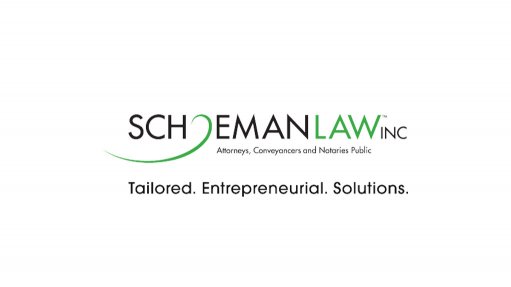
In October 2013, the revised Broad-Based Black Economic Empowerment (“Generic BBBEE Codes” or “Codes”) Codes were gazetted by the Minister of Trade and Industry (DTI). In April 2015 these (new) Codes came into operation (“new codes”) thereby replacing the existing BBBEE Codes of Good Practice (“old codes”).
The Construction Codes became effective about a year ago (1 December 2017) and applies specifically to the Construction Industry.
Method of scoring (generic codes)
Compliance with BBBEE is a turnover- based consideration. Businesses are categorised into 3 levels for this purpose namely: Exempt Micro Enterprises (“EME”), Qualifying Small Enterprises (“QSE”) and Generic Enterprises (“GENERIC”).
EME’s compliance is much more lenient than the other levels, as scoring and issuing a Certificate is done by way of an Auditor’s Certificate or Affidavit.
QSE’s on the other hand, have relieved compliance in terms of the scorecard while generic businesses require full scorecard compliance (without any relief).
Entities are measured on turnover as set out below:
EME Annual Turnover ≤ R10 million
QSE Annual Turnover of R10-50 Million
GENERIC Annual Turnover > 50 Million
Under the previous codes QSE’s could elect 4 out of the then 7 elements to be scored on, they are now required to be compliant with all 5 scorecard elements. These elements are: Ownership, Skills development, Enterprise and Supplier Development, Socio Economic Development and Management Control.
Priority items under the new codes
The new codes list three priority elements:
- Ownership;
- Skills development and
- Enterprise and Supplier Development.
A QSE must achieve 40% of the points for two of the three priority elements, with Ownership being a compulsory one. Non-compliance with the thresholds for the above priority elements will result in a penalty by one level on the QSE scorecard.
Who does it apply to?
In a nutshell, it applies to businesses which derive more than 50% of their income from Construction- related activities.
The key categories are:
- “Material Suppliers – manufacturing, creation or supply of building material and equipment used in construction e.g. cement, concrete, bricks, electrical equipment, steel, plant hire, plumbing, etc.;
- Built Environment Professional (BEP) – planning, design and costing of construction projects e.g. consulting engineers, architects, quantity surveyors, town planners, etc. It also includes project management and design of construction value chain including environment, energy, industrial, property, transport and infrastructure;
- Contractors – conduct construction project activities including Civil Engineering, Electrical Engineering, power transmission, general building, specialist construction works e.g. , wiring, air-conditioning, heating, asphalt work, excavations, scaffolding and support, shop-fitting, structural steelwork, water-proofing, etc.”
Classifications
EME’s
EME’s are still Companies with an annual turnover below R10 million, except when it comes to (BEP’s), whose threshold is R6 million in annual turnover.
From an Ownership perspective the following is automatically applicable:
- Below 30% Black Ownership = qualify for an automatic Level 5 B-BBEE Certificate
- Between 30% and 51% Black Ownership = qualify for an automatic Level 4 B-BBEE Certificate
- Above 51% Black Ownership = Level 2 B-BBEE Certificate
- 100% Black Ownership = Level 1 B-BBEE Certificate.
BEP’s whose annual turnover exceeds R1,8 million and R3 million for Contractors, will have to comply with the 40% sub-minimum prerequisite on the Qualifying Small Enterprise (QSE) Skills Development Scorecard to avoid being discounted a level.
QSE’s
These are Companies with an annual turnover between R10 and R50 million, but in the case of BEPs with an annual turnover between R6 and R25 million.
QSEs with 51% or more Black Ownership will qualify for a level 2 B-BBEE Certificate and a 100% Black-Owned QSE will qualify for a level 1 B-BBEE Certificate. Both will have to comply with the 40% sub-minimum requirement as per the Skills element to avoid being automatically discounted one level.
Affidavits
Affidavits are only allowed in very limited situations, i.e. BEPs with an annual turnover below R1,8 million and Contractors with an annual turnover below R3 million.
Conclusion
It is important that Companies that must comply with these Codes are properly advised from planning to implementation.
Written by Nicolene Schoeman-Louw, Managing Director, Schoeman Law